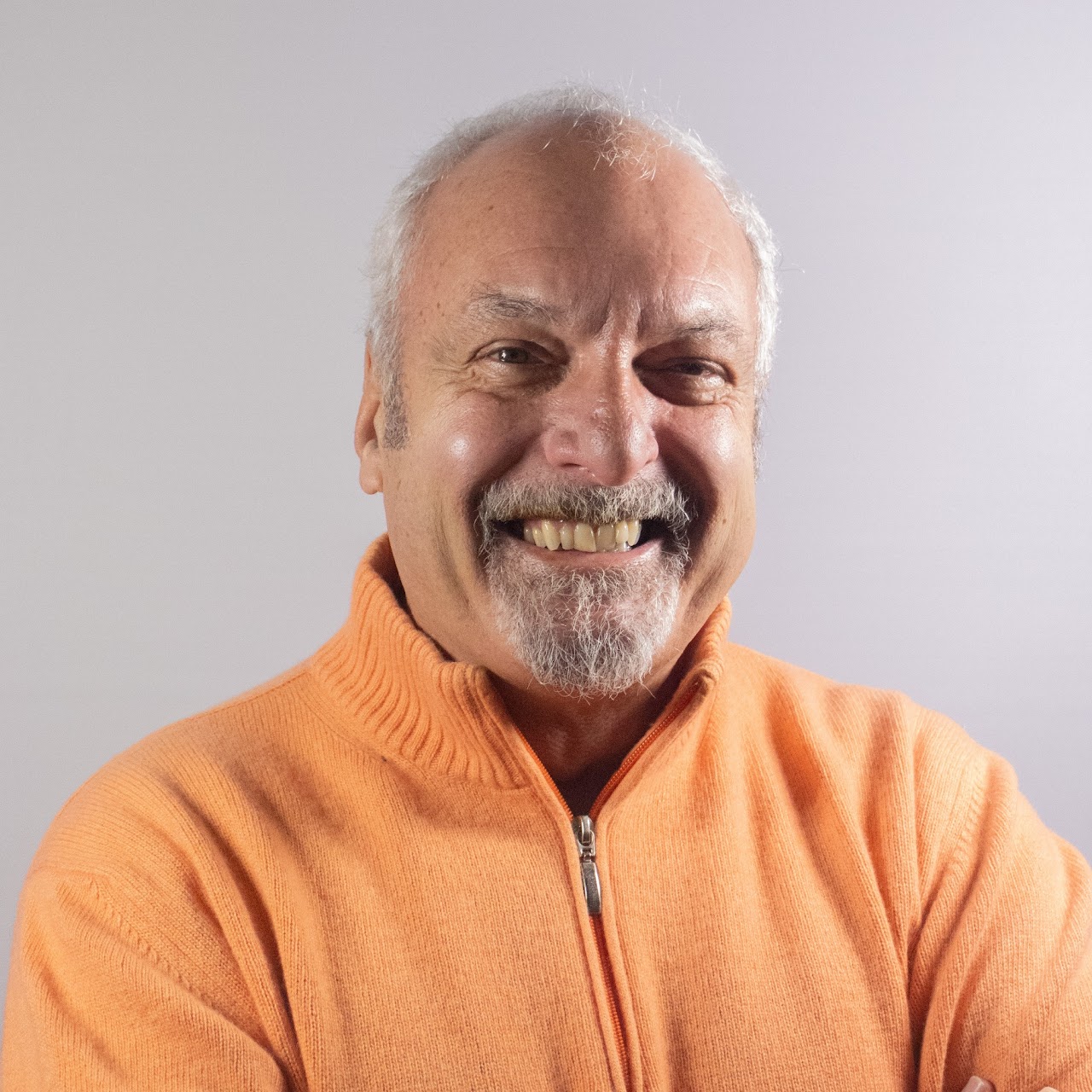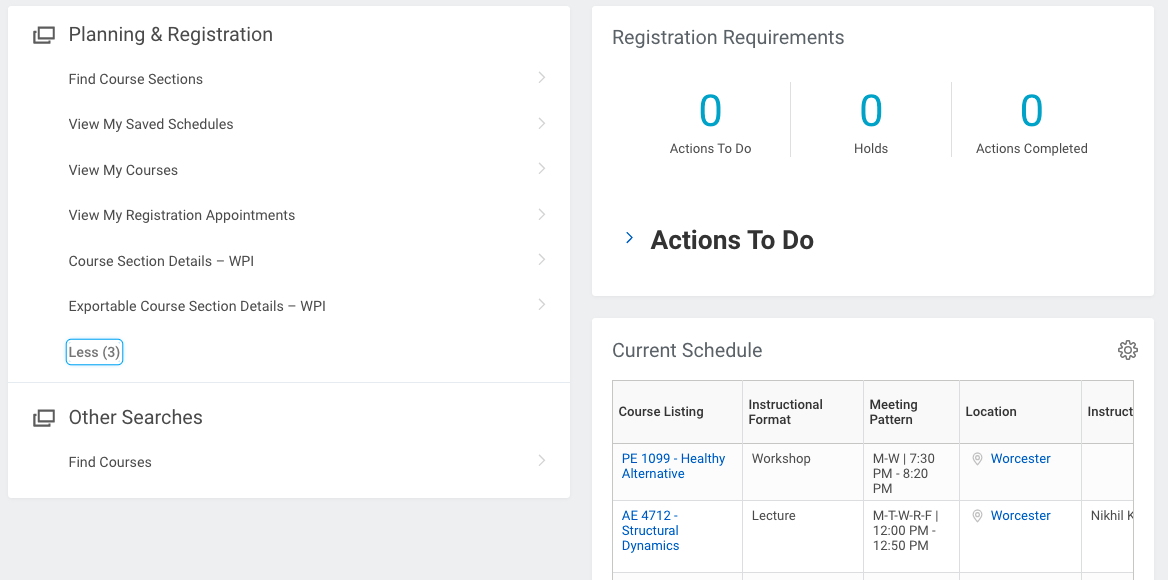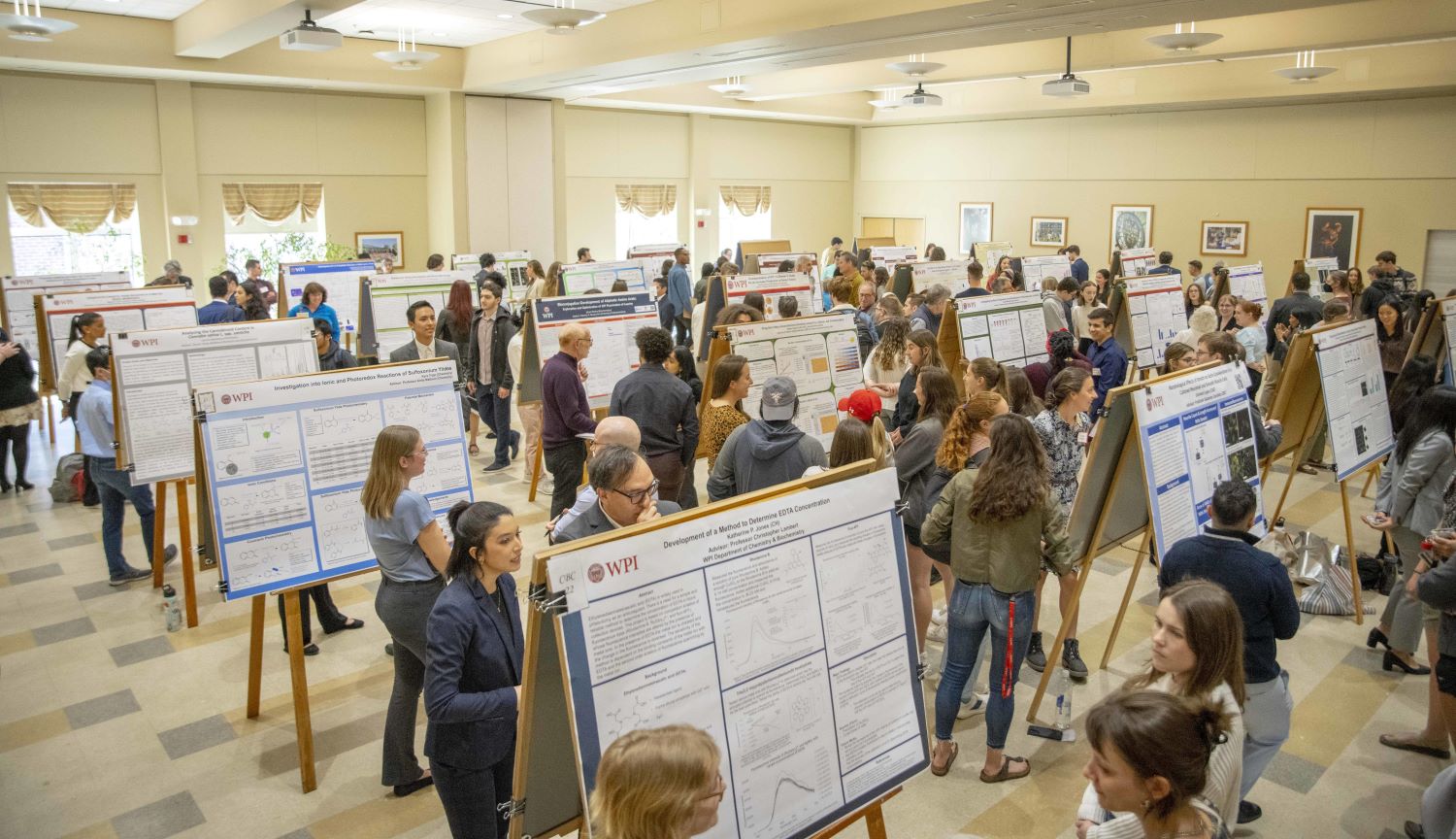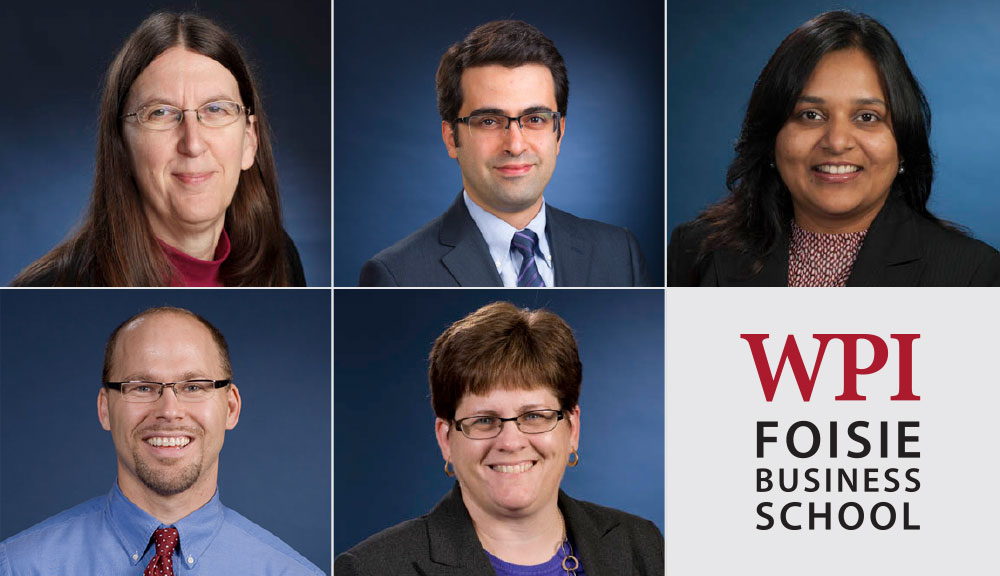An invaluable part of a WPI education is the opportunity for students to share their work and expertise with professionals even before graduation—a group of students completing their IQP work at the Copenhagen Project Center were able to do just that.
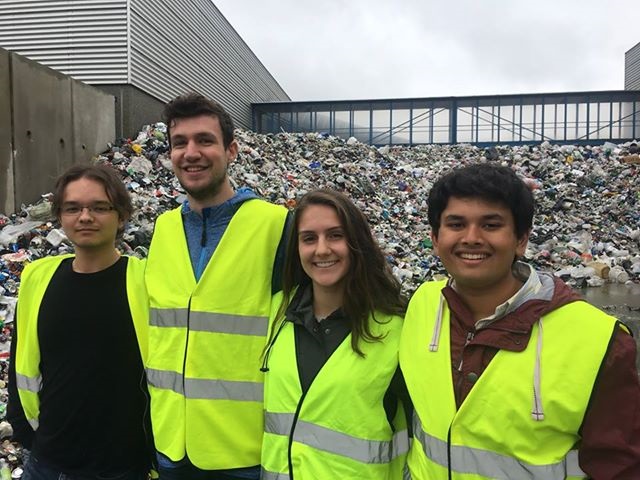
(Left to right) Sola Shirai, Josh Desmond,
Diana Celaj, and Akshaye Shah.
Juniors Diana Celaj, Josh Desmond, Akshaye Shah, and Sola Shirai collaborated on a project titled “Preparing for the Use of Big Data in Denmark’s Waste Management Sector,” where they explored the opportunities—and potential hurdles they might have faced—if Denmark’s waste industry implemented big data analytics in its work.
After hosting several interviews with representatives from the country’s four waste management companies, conducting surveys with Danish citizens, and completing independent research on the topic, the project team came up with three ways big data could be used to help Denmark improve its waste industry: identify trends in and make predictions about waste production; assess detailed performance metrics about various operations; and provide tailored feedback to citizens about their waste habits.
As it turns out, the project’s co-advisors—computer science professor Hugh Lauer and teaching professor Fabio Carrera—weren’t the only ones interested in what solutions and information the team had to share. Professionals from the Danish Waste Association were so keen to learn more that they invited the students to present their work at an industry conference on the country’s Jutland peninsula, a three-hour train ride from Copenhagen.
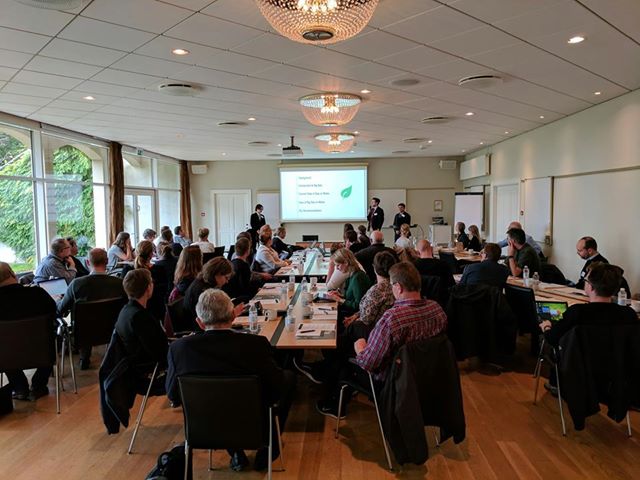
At the front of the room, Sola Shirai (left), Josh
Desmond, and Akshaye Shah share their work.
“It’s not often that a team of undergraduates gets this kind of recognition, and it’s less often that project-based learning gets this kind of recognition,” says Lauer.
At the conference the students shared their work and suggestions with prominent members of industry, an opportunity recognized by students and advisors alike.
“Being able to actually present our findings at this conference attended by the people who would be most likely to apply our findings made the project feel much more ‘real’ to me,” Shirai explains. “This wasn’t just a project that would be submitted for a grade and tossed away; it was seen by real industry professionals to help shape real policies in the future.”
The idea of presenting their work in front of those who are in charge of deciding whether their ideas would be implemented into Danish culture could strike some as the stuff of nightmares, but Shirai credits the group’s thorough work and preparation that made the experience an exciting one.
“It was great practice for the kind of work I might do after graduating,” Shirai says. “Throughout the course of the project, I gained valuable experience in overcoming roadblocks and rising to the challenge of producing the most successful project that we could. Things didn’t always go perfectly, but I think that made the experience even better.”
- By Allison Racicot



